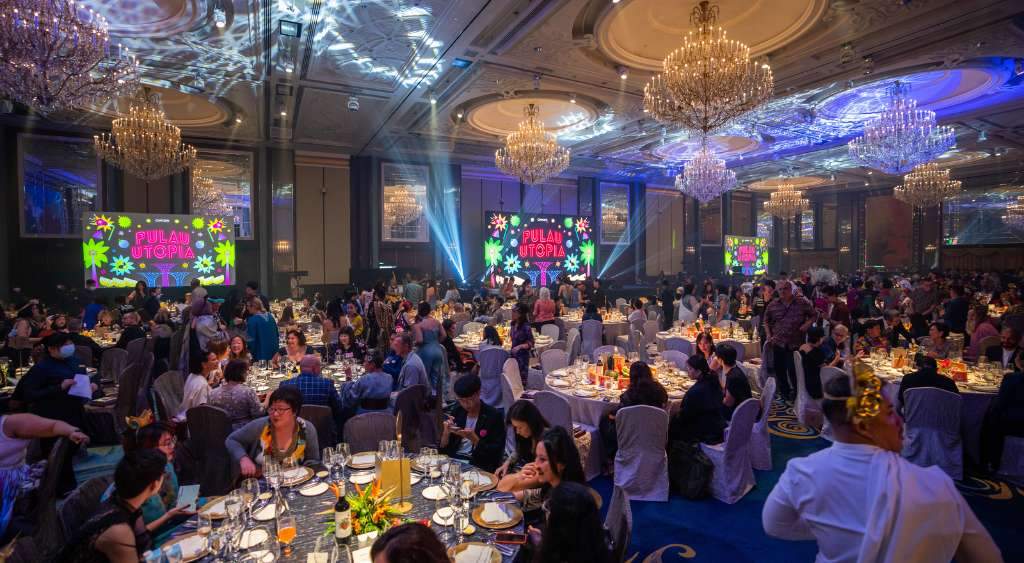
On Saturday, 12 November 2022, AWARE transformed the Shangri-La Singapore ballroom to Pulau Utopia, an island paradise of gender equality and social justice. The event marked AWARE’s 10th annual fundraising Ball, following a hiatus last year due to enhanced Covid-19 measures.
Pulau Utopia proved to be AWARE’s biggest Ball yet, in terms of guests and funds raised. Decked out in tropical glitz and glamour, our 600 guests pooled together a spectacular total sum of $623,400 through table sales, donations, lucky dip, wine sales and both silent and live auctions. This amount exceeded AWARE’s initial target of $600,000. With the Tote Board’s additional matching of $100,000, the grand total raised from this single event comes to an astonishing $723,400.

A sum of $220,000 from this total goes towards the launch of S.P.A.C.E (Support, Partner and Act through Community Engagement), a new AWARE initiative aimed to inspire, empower and connect people to create a fairer, more compassionate and gender-equal future.
S.P.A.C.E, as AWARE Executive Director Corinna Lim announced to Ball attendees, will “harness all the energy, the talent, the idealism, hope and frustration of the people who want to build a more just, equal, inclusive Singapore. S.P.A.C.E will incubate young groups, and also train the next generation of feminist leaders, whatever their gender.”
In her opening remarks, AWARE President Ong Soh Chin thanked the many AWARE feminists who came before her. “I am here today because of these pioneering women who spoke up. So tonight, I want to celebrate them, as well as the many young women, and men, who continue to do pioneering work speaking up for a more gender-equal society… Thanks to you, we can dream of a Pulau Utopia, and try to make it as real as humanly possible.”
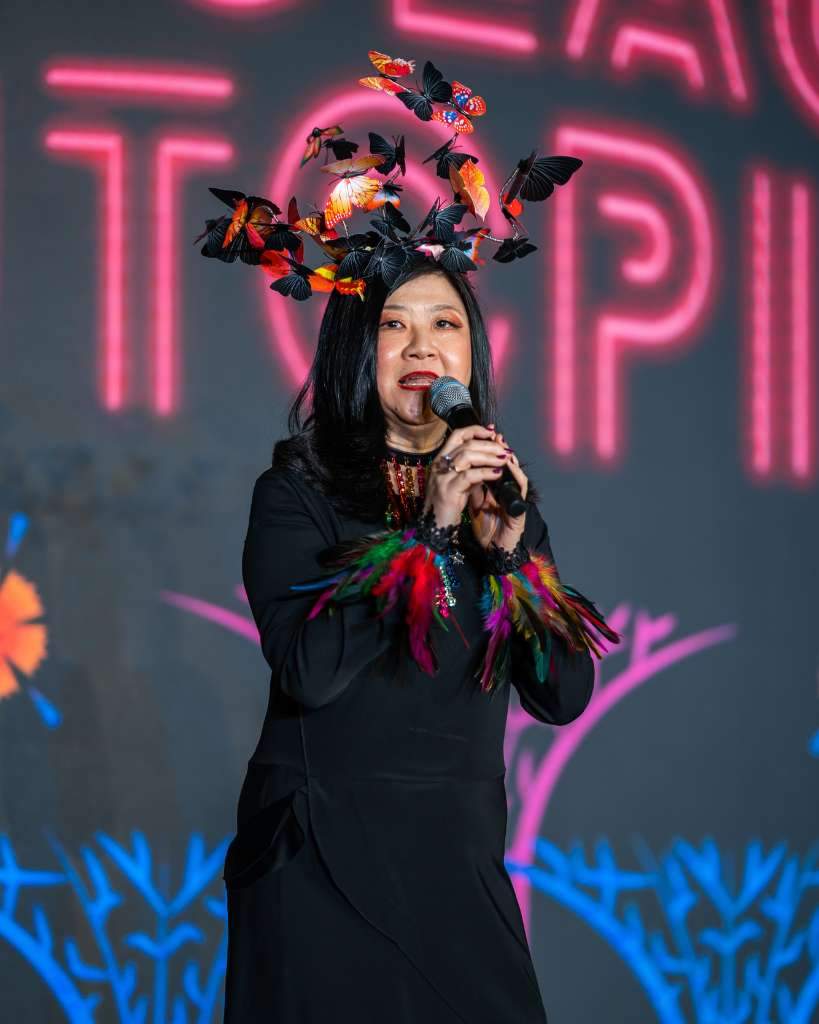
The night’s entertainment programme was three hours of delight, with plenty of feminist twists. Actor-comedians Pam Oei and Rishi Budhrani, paired again as hosts for the Ball, introduced the show. Then, guests were treated to a special collaboration by Marc Nair, Mark Nicodemus Tan and Inch Chua with a piece titled “We Have Something To Say”. The medley commended Singapore’s landmark White Paper on Women’s Development published earlier this year, while providing light-hearted jabs at some of its initiatives.
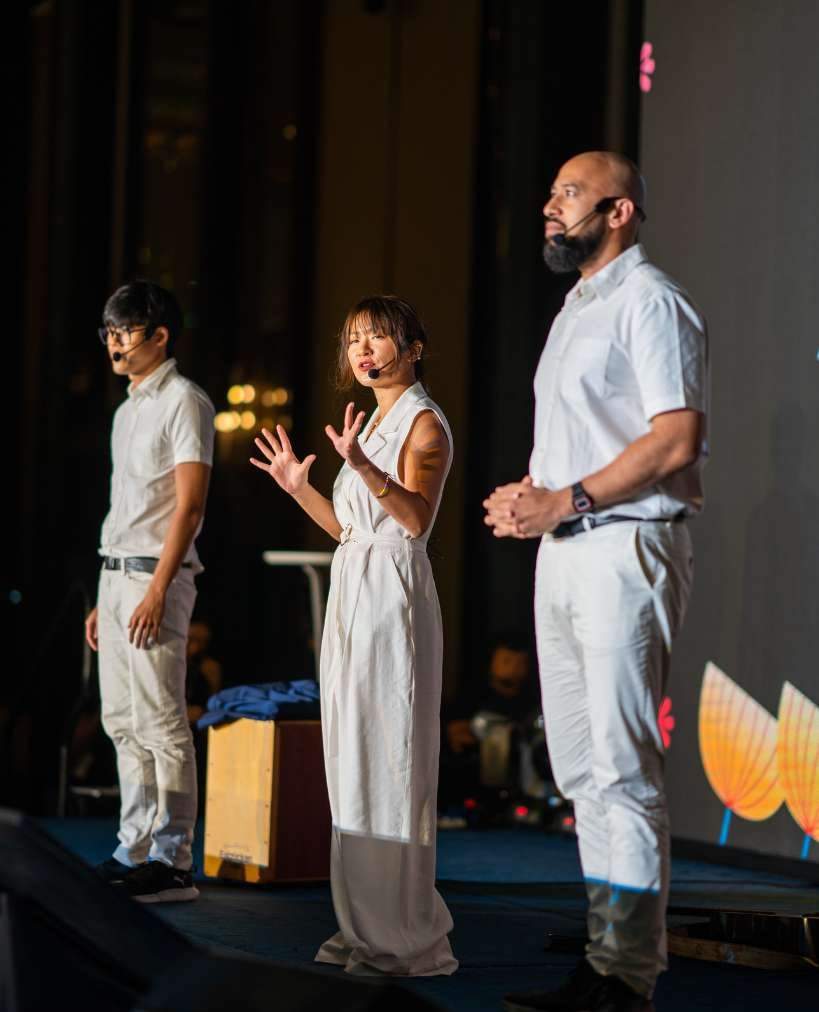
Afterwards, Chestnuts, who have been entertaining the AWARE community since the organisation’s first ball in 2011, returned with more side-splitting musical satire. While AWARE’s traditional Alamak Awards — handed out to the year’s most egregious instances of sexism and discrimination in Singapore — were not officially given out this year, Chestnuts still lampooned three noteworthy items from 2022: Hwa Chong Institution’s sex education faux pas, overly restrictive polices surround social egg freezing and National Crime Prevention Council’s insensitive Facebook ad deriding Amber Heard.
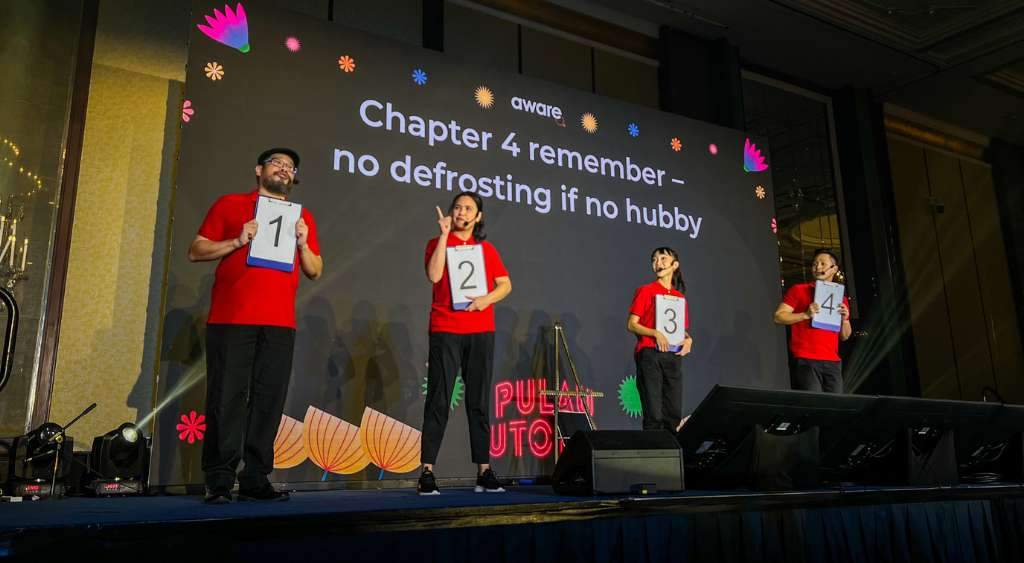
Pulau Utopia saw the return of another exciting Ball tradition: the Live Auction, hosted by auctioneer Shaun McEwan. The electrifying segment saw guests bidding on exclusive experiences offered by our corporate sponsors, including an Antidote Cruise with Dr. Karenne Tun (organised by 1880), a three-day two-night stay at Montigo Resorts Nongsa (by KOP) and six-day five-night Peru Sacred Valley Exploration by Pudu Puda Travel. This Live Auction complemented the ongoing Silent Auction, which was launched a week before the Ball and featured jewellery by Lee Hwa Jewellery and Ivy Masterpiece; pre-loved luxury bags by Huntstreet; curated tours of Tiong Bahru by Carolyn Oei and Marc Nair; feminist tours of the National Gallery by Ng Yi-Sheng; a Peranakan home-dining experience accompanied by a violin solo by Lynnette Seah; and a “Road to Repeal” talk and dinner with folks from Pink Dot and Ready4Repeal.
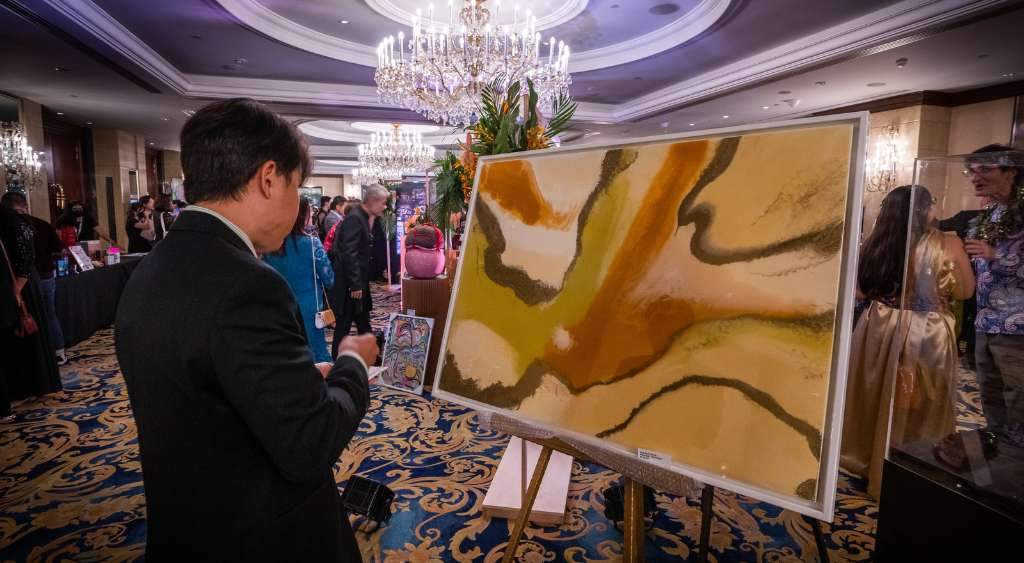
After the auction, AWARE officially launched the first programme under the new S.P.A.C.E banner: a 12-month Community Leadership Programme designed to support and develop emerging changemakers. Guests were introduced to five pioneer S.P.A.C.E “cadets”— Hana Alhadad, Shaun Loh, Nisha Rai, Han Yi and Michelle Low—who took the stage to recount their own experiences with gender inequality, and how these motivate them to fight for change.
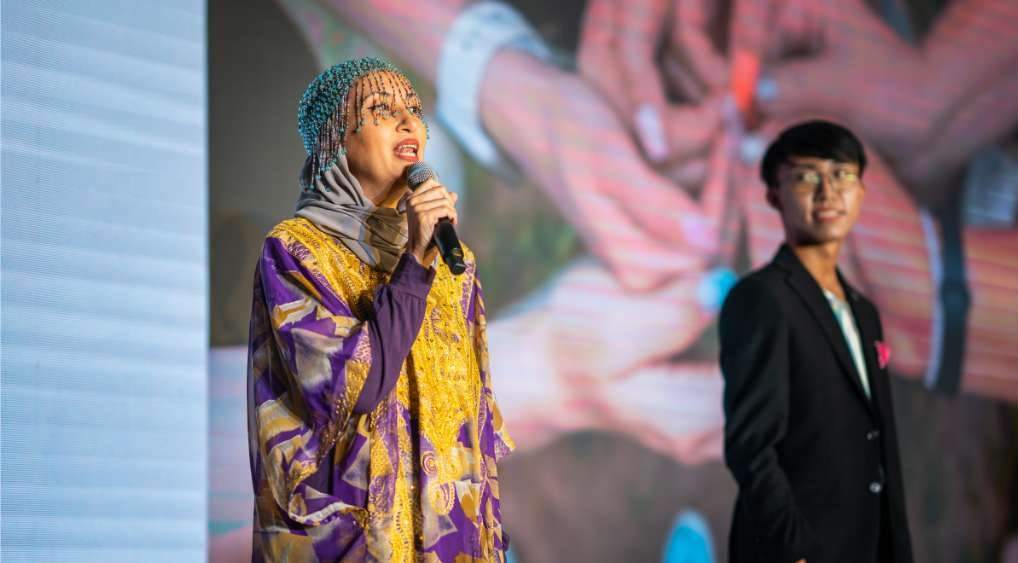
The night drew to a close with the announcement of the lucky dip’s big draw. Three winners went home with, respectively, a Shiseido 150th Anniversary Collection VIP set; a three-day, two-night stay at the St. Regis Hotel; and the grand prize of a two-day, one-night stay at Montigo Resorts Seminyak Deluxe two-bedroom spa villa. Then came the announcement of the night’s three best-dressed individuals and best-dressed table. Finally, long-time AWARE Ball mainstay DJ Aldrin kicked off an exhilarating dance set.

The Ball would not have been possible without the generous support of AWARE’s corporate sponsors KOP Properties Limited and Kah Motor, and official partners Ppurpose, Senses AVL, Cornerstone Wines, World Scientific and Kanyeka.
Missed the Ball but wish to make a donation anyway? Do so here!
Photography by Wesley Loh/Memphis West Pictures and Kathleen Cheong





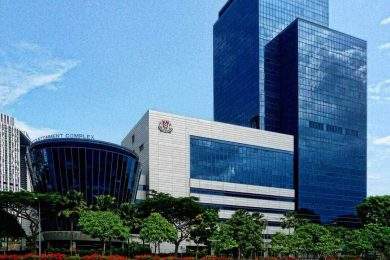


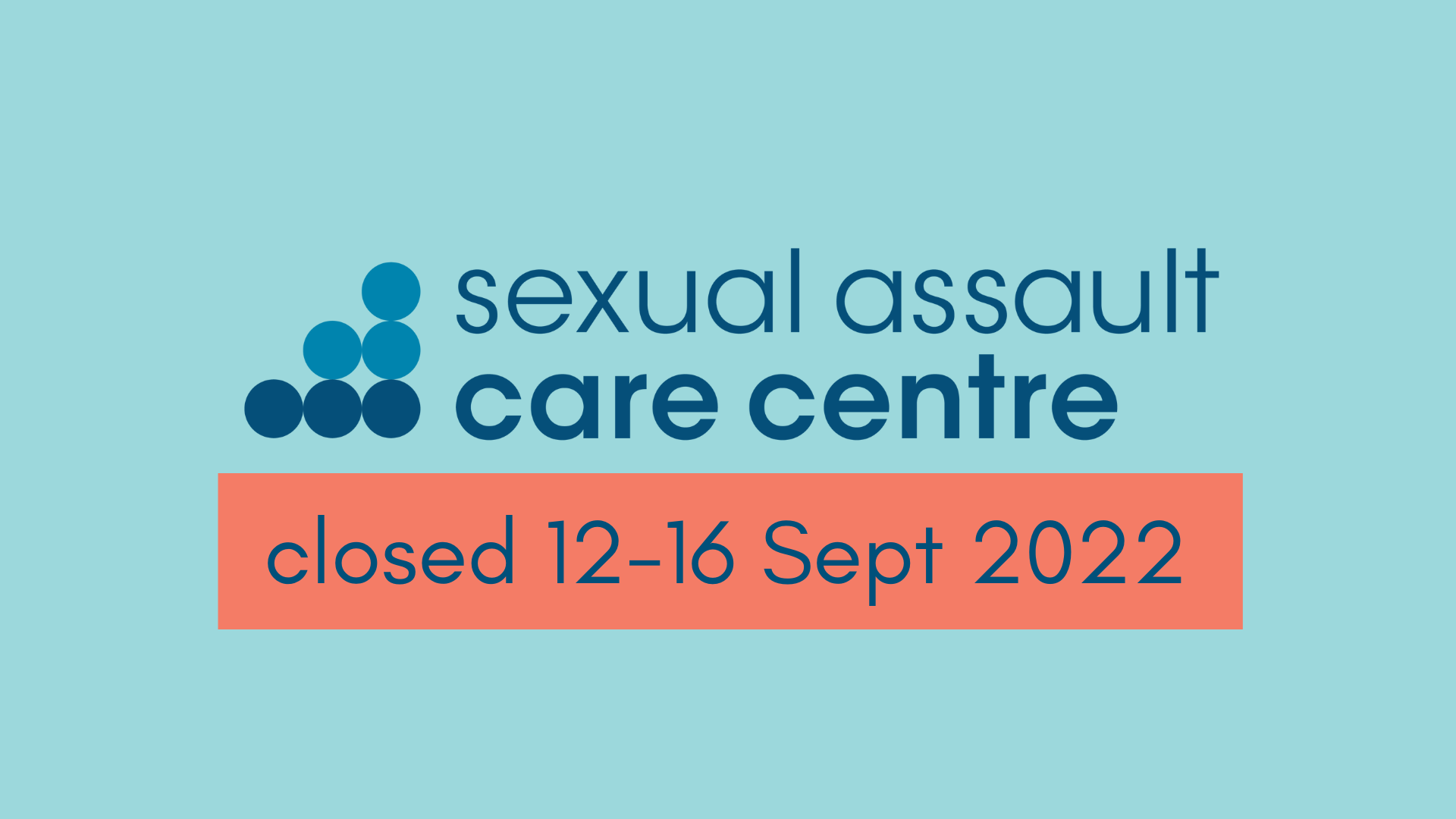

 This letter was originally published in
This letter was originally published in